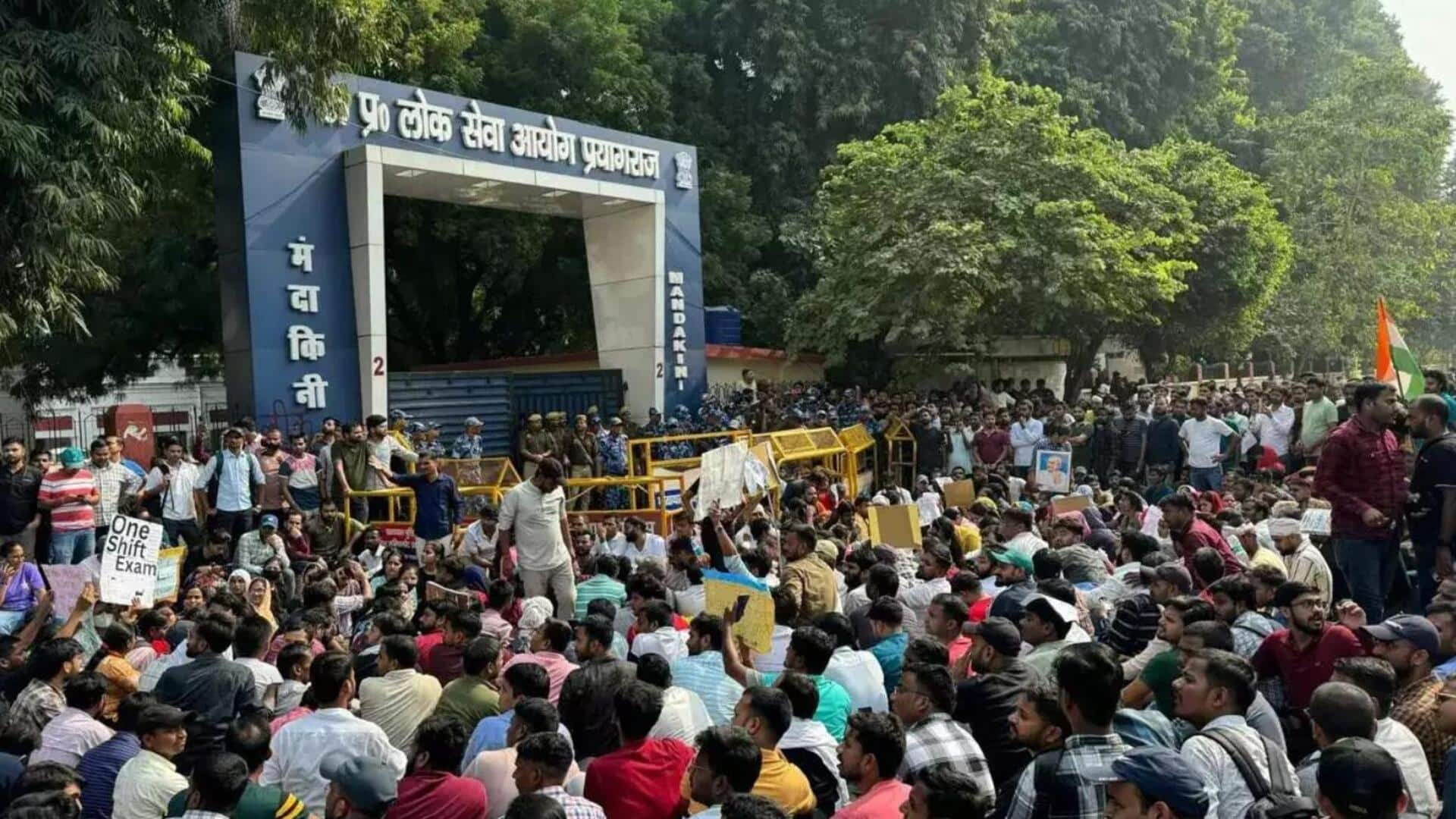
UPPSC rolls back decision on Prayagraj job exam after protests
What's the story
The Uttar Pradesh Public Service Commission (UPPSC) has been at the center of massive student protests in Prayagraj over the scheduling of important recruitment exams.
The unrest was sparked after UPPSC announced that the Provincial Civil Service (PCS) and Review Officer/Assistant Review Officer (RO/ARO) exams would be held over several days and shifts.
Students demand a "one day, one shift" format, fearing paper leaks and fairness issues with the staggered schedule.
Exam integrity
UPPSC's rationale and students' concerns over exam schedule
Initially, the UPPSC defended its decision to conduct exams in shifts, saying it was taken to benefit applicants and maintain exam integrity.
The commission also intended to use a normalization process for evaluating results considering the multi-day schedule, a practice backed by court rulings across India.
However, these assurances did not quell student protests which escalated into clashes with police outside the UPPSC office.
Political fallout
Political reactions and logistical challenges amid protests
The student protests have also caught political attention. Samajwadi Party chief Akhilesh Yadav slammed the state government over its handling of the situation, calling it "yogi vs competitor students."
Deputy Chief Minister Keshav Prasad Maurya demanded a quick resolution to avoid further disruption to students' preparation time.
Meanwhile, UPPSC Secretary Ashok Kumar pointed out logistical challenges in fulfilling student demands. He said while 576000 candidates registered for the PCS exam, centers could only accommodate 435000 students in all districts.
Exam rescheduling
UPPSC's partial concession amid ongoing student protests
In light of the growing unrest, the UPPSC has agreed to conduct the PCS prelims in a single shift. However, it is yet to fully concede to student demands for the RO/ARO exams.
The commission intends to form a committee to look into conducting these exams in one shift.
Despite this concession, students have vowed to continue protests until all their demands are fully met.